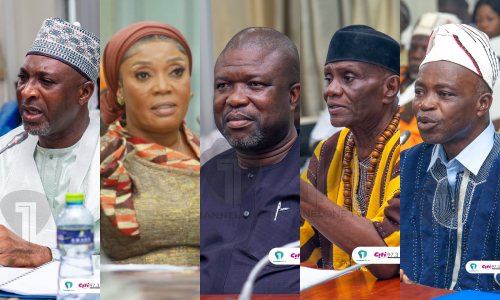The Ghanaian Parliament has recently confirmed the appointment of Muntaka Mohammed-Mubarak as the Minister for the Interior, marking a significant step in shaping the country’s security and governance landscape. Mubarak, a seasoned politician representing the Asawase constituency, brings a wealth of experience and a proven commitment to public service to this crucial role. The Interior Ministry, responsible for maintaining internal security, managing law enforcement agencies, and overseeing immigration and citizenship matters, plays a pivotal role in ensuring national stability and the protection of citizens. Mubarak’s appointment follows a rigorous vetting process by the Parliamentary Appointments Committee, which thoroughly examined his qualifications, experience, and suitability for the position. His confirmation by the full Parliament signifies a vote of confidence in his ability to effectively lead the ministry and address the complex challenges facing the nation’s internal security. The appointment is widely perceived as a strategic move to strengthen the government’s focus on security and enhance its capacity to respond to evolving threats.
Alongside Mubarak’s appointment, Parliament also approved the nominations of four regional ministers, further bolstering the government’s administrative structure and its commitment to regional development. These appointments represent a concerted effort to enhance governance at the regional level and ensure effective coordination between the central government and regional administrations. Ali Adolf John has been appointed as the Northern Regional Minister, tasked with overseeing the development and administration of the Northern Region, a geographically vast area with unique developmental challenges. John Kwadwo Gyapong assumes the role of Oti Regional Minister, responsible for guiding the development trajectory of the relatively new Oti Region, which faces specific needs in terms of infrastructure, education, and healthcare.
James Gunu has been appointed as the Volta Regional Minister, bringing his expertise to bear on the development of the Volta Region, a historically significant area with considerable economic potential. Lastly, Mrs. Rita Akosua Awatey takes on the mantle of Eastern Regional Minister, focusing on the development priorities of the Eastern Region, a key agricultural and industrial hub. These regional ministers are expected to work closely with local communities, stakeholders, and traditional authorities to identify and address the pressing needs of their respective regions. Their leadership will be crucial in fostering inclusive growth, promoting social cohesion, and ensuring that the benefits of development reach all citizens within their jurisdictions.
The appointments of these regional ministers are seen as a strategic move to decentralize power and enhance local governance. By empowering regional leaders with the authority and resources to manage their affairs effectively, the government aims to improve service delivery, promote local ownership of development initiatives, and address the specific needs of each region. This approach is expected to lead to more targeted development interventions, greater accountability, and improved responsiveness to the needs of local communities. The diverse backgrounds and experiences of the appointed ministers are seen as an asset, bringing a range of perspectives and skills to the table to address the multifaceted challenges facing the regions.
Stakeholders across various sectors have expressed optimism about the potential positive impact these appointments could have on governance and regional advancement. Civil society organizations, business leaders, and community representatives have welcomed the new leadership, emphasizing the importance of collaboration and effective governance in driving progress. The appointments are viewed as a sign of the government’s commitment to improving the lives of citizens across the country, and there is a shared expectation that the new ministers will prioritize inclusive development, good governance, and accountability. The success of these appointments will largely depend on the ability of the ministers to effectively engage with stakeholders, build consensus, and implement effective policies that address the specific needs of their regions.
The confirmation of these ministerial appointments represents a significant step in the ongoing efforts to strengthen governance and promote development in Ghana. The new ministers are expected to play a pivotal role in shaping the future of their respective regions and contributing to the overall progress of the nation. Their leadership, vision, and commitment to public service will be instrumental in driving positive change and ensuring that the benefits of development reach all citizens. As they embark on their new roles, the nation looks forward to their contributions in fostering growth, promoting peace and security, and enhancing the well-being of all Ghanaians. Their success will not only benefit their respective regions but also contribute to the overall progress and prosperity of the nation.














